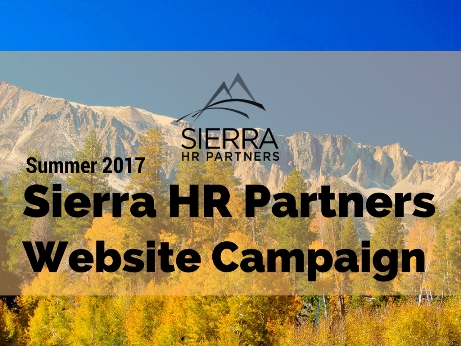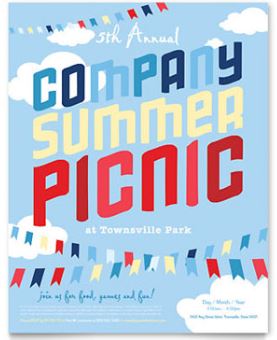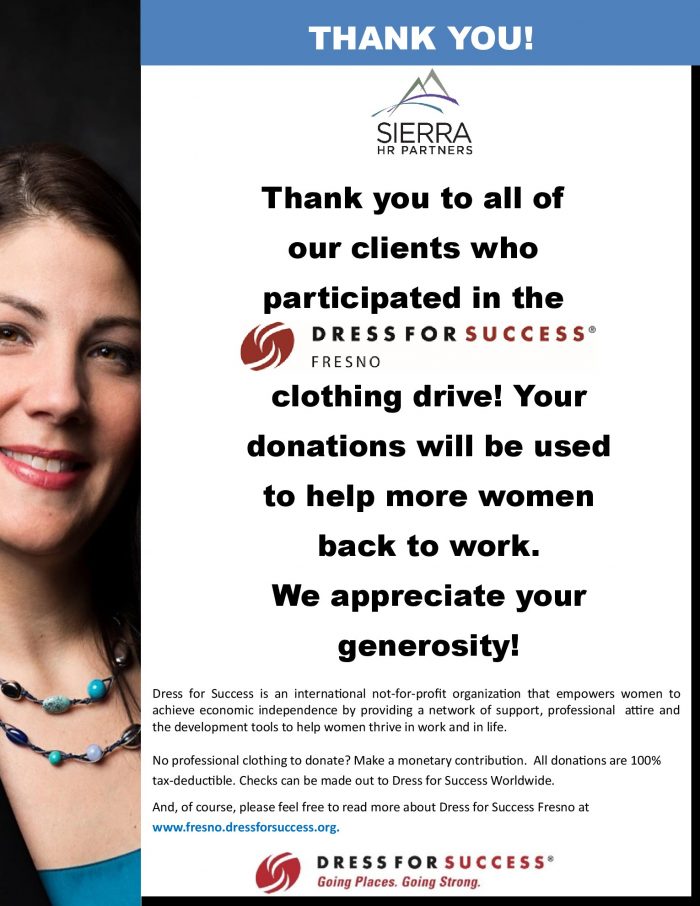06.15.17
Checking Criminal Histories Without Breaking the Law: June 2017 HR Bulletin
HR Bulletin
Checking Criminal Histories Without Breaking the Law

The Fair Employment and Housing Act (FEHA) and the Fair Credit Reporting Act impose significant limitations on the ability to check into a job applicant’s criminal history. An employer is not permitted to consider charges that were dismissed, sealed, or did not result in conviction. Most convictions more than seven years old cannot be considered, as well as certain marijuana convictions beyond two years old. If you use a third-party agency to conduct a background investigation, the applicant must provide written authorization, and must be given a copy of the report and the chance to dispute information contained in it.
Despite these existing rules, FEHA has recently been updated to state that an employer is prohibited from using an applicant’s criminal history when making a hiring decision if doing so would have an “adverse impact” on protected individuals, and the employer cannot prove that its standards are consistent with business necessity. Adverse impact is defined as a policy or practice that appears neutral, but has a substantially different rate of impact on protected classes. For example, a policy of never hiring a person with a felony conviction may adversely affect African-American or Hispanic men.
So are we saying you need to stop conducting background checks? Not by a long shot. A thorough, legally-compliant background investigation should be a consistent part of any employer’s hiring process. The key is to show the business necessity and job-relatedness of your policies. While you should not have a “bright line” policy that rejects applicants with criminal records, you can (and should) use convictions in your hiring decisions when you:
• Take into account the nature and gravity of the offense,
• Consider the time since the offense occurred, and
• Connect the type of offense to the requirements of the job.
An employer must also provide applicants with notice if they are being screened out due to criminal convictions and allow reasonable opportunity for the applicant o explain why he/she should not be excluded from further consideration. If an applicant can provide evidence that a conviction record is inaccurate, you should not continue to use that record in your decision-making process.
This may seem extremely complicated, but the background investigation specialists at Sierra HR Partners are here to help. We can partner with you to determine which searches are job-related and analyze an applicant’s investigation results so you can make appropriate hiring decisions. We can also provide you with sample letters to notify applicants who are not hired based in part on a criminal record. If you have questions about your current screening process, contact us today.
06.08.17
2017 Website Campaign
Announcements
Sierra HR Partners has a new website!

To improve service and value for our clients, we’ve worked through the joys and challenges of creating an entirely new, interactive website. We hope you’ll take a few minutes to check out the new features and familiar faces of Sierra HR Partners.
To pique your interest, we invite you to take our brief website quiz. Just click on the button below. All of the answers you’ll need are found on our website. It only takes about 10 minutes to hunt for the answers to 12 questions, and you’ll be entered in a drawing to win a prize!
(more…)
05.31.17
Don’t Get Burned By Summertime Events -May 2017 HR Bulletin
Uncategorized
Don’t Get Burned by Summertime Events
The summer season is upon us, and many employers look forward to planning events such as barbeques, baseball games, and water park trips. These outings provide excellent opportunities to reward employees, socialize with families, and enjoy time away from the normal pressures of the office…but as a manager or HR professional, this is not the time to let down your guard.
Employer Liability
Employees and managers alike tend to think that “what happens away from the office, stays away from the office.” But under the doctrine of respondeat superior, an employer may be held liable for acts committed by employees within the course and scope of their employment, whether at the workplace or not. Furthermore, the employee does not need to be engaged in his/her actual job responsibilities to be deemed “under the control of the employer.” Liability is increased if the event is mandatory or if the employer may be seen as benefitting from the event through awards presentations or discussion of company programs or goals.
Sexual Harassment
Summer events are perfect environments for employees to relax from the formal dress code of your office, but bathing suits or other revealing clothing can easily open the door to suggestive comments or behavior. A one-time incident at a summer picnic may be severe enough to create liability, or may be cited as part of a pervasive pattern of inappropriate conduct.
Employee Injuries
Workers’ compensation typically does not cover injuries arising out of voluntary participation in off-duty events, but if a social event is considered to be work-related, workers’ compensation insurance may apply to injured employees.
You may reduce this risk by avoiding high-risk activities such as water skiing, and ensuring that only responsible individuals operate barbeque grills and other cooking equipment. Keep a close eye on bounce houses, obstacle courses and races, and any water activities.
Alcohol Consumption
The risks for harassment claims and injuries are heightened when employees consume alcohol at social events. In a 2004 legal claim involving liability for injuries caused by drunk driving after a company party, the court stated, “ It is irrelevant that foreseeable effects of the employer’s negligent conduct occurred at a time the employee was no longer acting within the scope of his or her employment.”
Social Media
Ever-present “selfies” and social media posts increase the likelihood that images and recordings of less-than-professional behavior will be shared outside of the company, damaging company image and employee credibility.
HR Best Practices
So what’s a good HR Manager to do? You can help to ensure that employees have a great time while protecting the interests of your company with the following steps:
• Clearly inform employees that events are voluntary.
• Remind employees and managers about appropriate conduct, anti-harassment policies, and social media policies.
• Specify that attire should be in good taste and appropriate for a workplace event.
• Shape your social media policy in advance and explain the expectations to all employees. Be prepared to address inappropriate social media posts.
• Consider no alcohol, a cash bar, or drink tickets to limit alcohol consumption.
• Make arrangements for sober transportation (taxi, ride share, designated drivers).
• Follow standard procedures if an employee is injured including providing the DWC-1 Form within one working day and notifying your workers’ compensation carrier of the incident.
• Promptly investigate any complaints of harassment or inappropriate behavior.
• Enlist the help of other managers to watch for inappropriate behavior and excessive drinking, and take necessary steps.
Want to read the full newsletter? Become an HR Business Partner and receive our monthly updates by email.
As an HR Business Partner, you receive:
• Unlimited phone consultation by certified HR consultants Monday through Friday, 8 a.m. – 5:30 p.m.
• Free monthly legal seminars for designated representative
• Breaking employment news & best practices
• Discounted project rates
• Peace of mind
03.24.17
March 2017 HR Bulletin
HR Bulletin
What are your employees saying about you?

If you are still using a physical suggestion box in your workplace, you may want to consider throwing it in the trash. Gone are the days when employees come to talk to you in person about their concerns or take advantage of an office suggestion box. Today, applicants and employees go online to read about a company’s culture, pay and benefits and to post about their personal experience. Do you know what is being said online about your company?
According to an article in February 2017 SHRM magazine, Glassdoor’s CEO Robert Hohman reports that 72 percent of workers say they are “OK” or “satisfied” with their jobs and companies. And the average CEO rating is 67 percent.
Employers are scrambling to figure out how to manage their online presence. Did you know that if a current or former employee posts something on Glassdoor that isn’t true that it won’t be taken down? In fact, this popular website will only consider removing posts if a non-management employee is named or profanity is used. Other than that, what is posted by a disgruntled employee stays online indefinitely.

From an HR viewpoint, we recommend you start by doing the following:
• Type your company name in the search bar and see what you find. You may see posts on several popular social media sites that should be read and addressed.
• If you find that negative comments are being made, first stop and reflect as to why. Perhaps you are experiencing a cultural shift in leadership, downsizing, merging companies or rapidly expanding.
• Posts regarding missed meal periods, long hours, safety issues or harassing behavior cannot be ignored. Conduct an immediate investigation to ensure that all workplace laws are being followed. If you find there are practices out of compliance, contact your employment counsel right away for legal guidance.
• Devise a strategy for responding to applicant and employee comments. In most cases not responding at all isn’t recommended. Will that be the owner, CEO or HR? Then decide how you plan to respond. Your responses should be authentic, fair and forthright.
• When responding, do your best to put yourself in the commenter’s shoes. Whether or not there is truth to the anonymous posts, there is some level of dissatisfaction taking place in the organization and you need to understand why.
• Create online alerts with various sites such as Glassdoor, Twitter and Facebook to automatically email you when your company is named in a post so that you remain informed.
• Encourage (but don’t require) your happy employees to post online about their experience to create a balanced picture of what it is really like to work for you.
• Take advantage of free employer branding accounts on sites like Glassdoor where you can tell the full (exciting) story of your workplace, including pay, work-life balance, benefits, culture, growth opportunities, photos, etc.
Our HR consultants are available to discuss the importance of establishing and maintaining your online employer brand.
Want to read the full newsletter? Become an HR Business Partner and receive our monthly updates by email.
As an HR Business Partner, you receive:
• Unlimited phone consultation by certified HR consultants Monday through Friday, 8 a.m. – 5:30 p.m.
• Free monthly legal seminars for designated representative
• Breaking employment news & best practices
• Discounted project rates
• Peace of mind
03.16.17
Thank you for participating in the Dress for Success Clothing Drive!
Announcements
Thank you for participating in the Dress for Success Clothing Drive!

Dress for Success’ vision is a world where women do not live in poverty. They strive for a world where all women are financially independent, are treated with dignity and respect and are directly impacting their lives and those of their families. Dress for Success aspires to create a world that fully harnesses the power of women and recognizes their role in economic sustainability.
Dress for Success’ purpose is to offer long-lasting solutions that enable women to break the cycle of poverty. Dress for Success is part of a global movement for change, empowering women to obtain safer and better futures.
They provide each client with professional attire to secure employment, but are about much more than simply a new outfit. Besides physically equipping the client with apparel and accessories, their programs furnish her with a confidence that she carries forever and the knowledge that she can actively define her life, the direction she takes and what success means to her.
Dress for Success believes that every woman has the right to realize her full potential and achieve financial independence in a more egalitarian world. They believe that with the proper education, tools and action this world is possible.
Poverty often affects women the most, and its effects on them and their families can be long-lasting. Therefore, addressing women’s needs is central to improving the quality of life for not only that woman but also her family, future generations and her community. In fact, recognizing the significant role of women in economic development is the smart thing to do, as well as being socially and morally right.
Dress for Success believes that achieving gender equality is imperative to developing a sustainable and just world for all, which is possible by acknowledging the crucial role that women play in the world economy. They believe that by building up a woman’s agency and knowledge, better synergies between gender equality and economic sustainability are realized, enabling her to generate a long-term impact in both her private and public life.
Dress for Success in an international not-for-profit organization that empowers women to achieve economic independence by providing a network of support, professional attire and the development tools to help women thrive in work and in life.
Missed out on the donation deadline?
Visit Dress for Success Fresno’s website for more information about what you can do to help!







